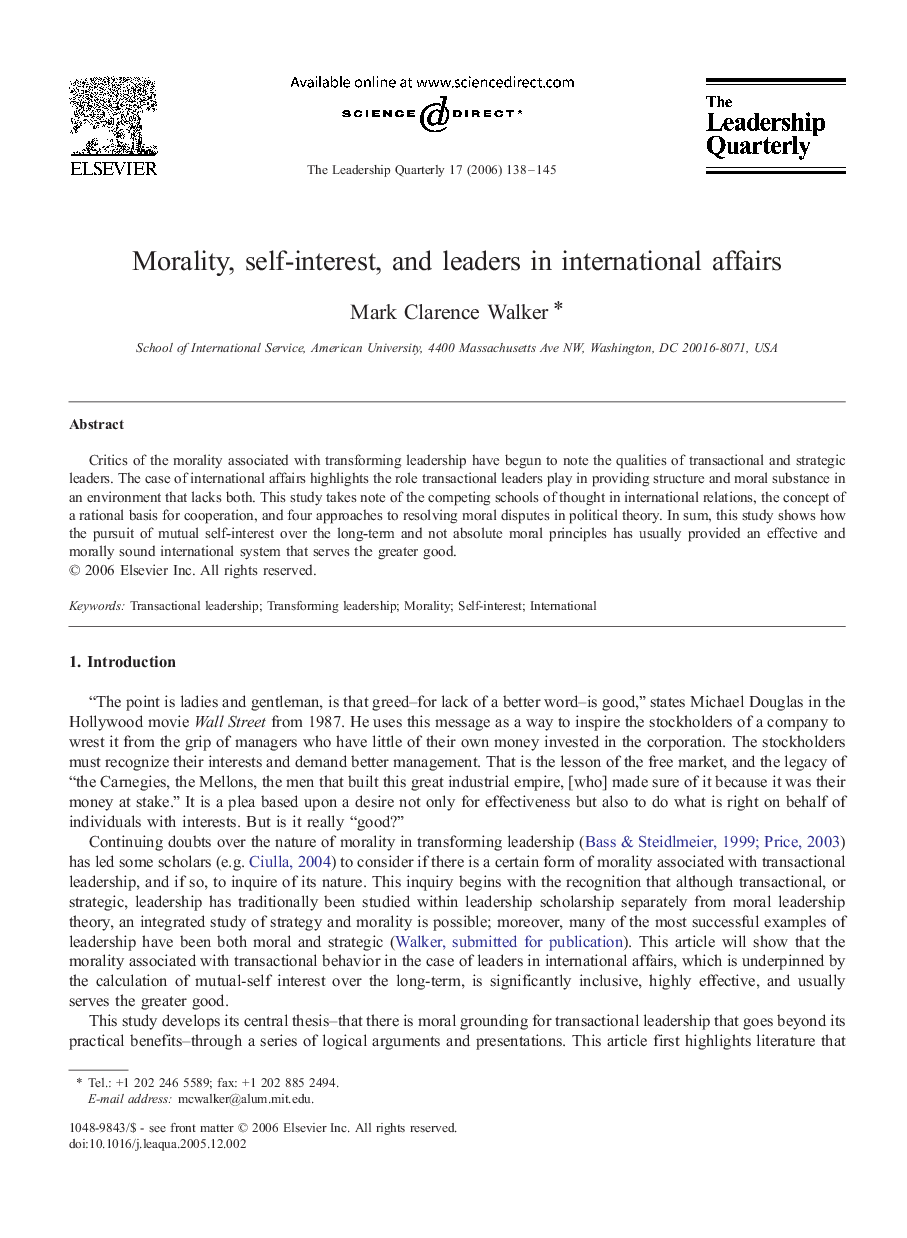| Article ID | Journal | Published Year | Pages | File Type |
|---|---|---|---|---|
| 888437 | The Leadership Quarterly | 2006 | 8 Pages |
Abstract
Critics of the morality associated with transforming leadership have begun to note the qualities of transactional and strategic leaders. The case of international affairs highlights the role transactional leaders play in providing structure and moral substance in an environment that lacks both. This study takes note of the competing schools of thought in international relations, the concept of a rational basis for cooperation, and four approaches to resolving moral disputes in political theory. In sum, this study shows how the pursuit of mutual self-interest over the long-term and not absolute moral principles has usually provided an effective and morally sound international system that serves the greater good.
Related Topics
Social Sciences and Humanities
Business, Management and Accounting
Business and International Management
Authors
Mark Clarence Walker,
